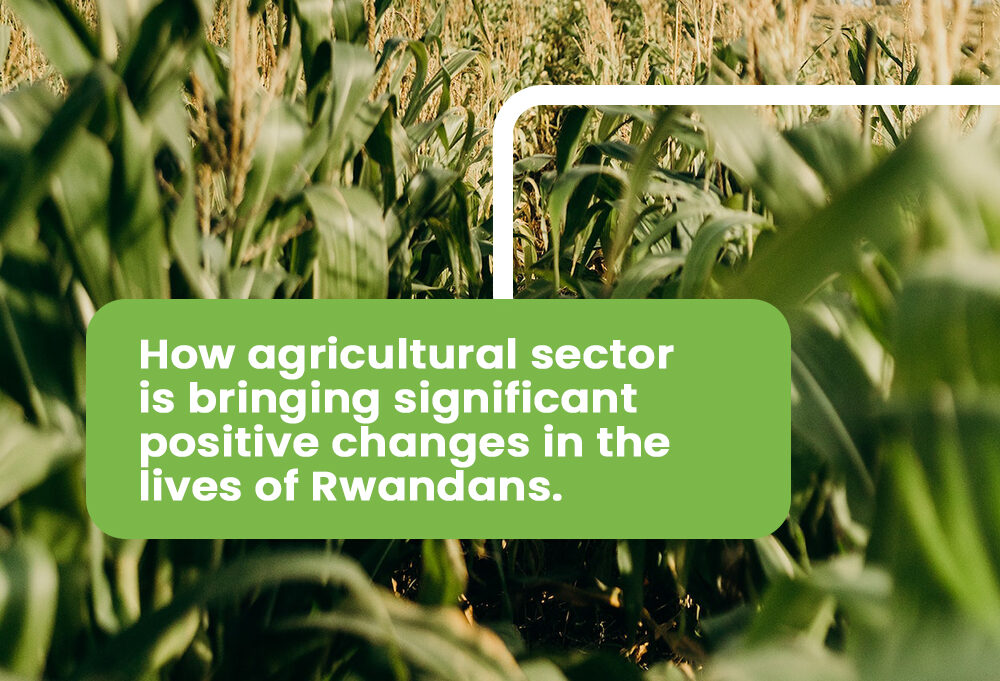In recent years, the agricultural sector in Rwanda has emerged as a powerful catalyst for positive change in the lives of its citizens. With a commitment to innovation, sustainability, and community development, Rwanda’s agricultural landscape is undergoing a remarkable transformation. In this article, we delve deep into the reasons behind this transformation and explore how the agricultural sector is contributing to the nation’s prosperity.
The Economic Backbone
Rwanda, often referred to as the “Land of a Thousand Hills,” boasts a predominantly agrarian economy. Agriculture is not just a sector of the economy; it is the backbone of Rwanda’s economic structure, employing the majority of the population and contributing significantly to the nation’s GDP.
Sustainable Farming Practices
One of the key factors driving the positive change in Rwanda’s agricultural sector is the adoption of sustainable farming practices. The government has actively promoted the use of organic fertilizers and crop rotation techniques, which not only increase crop yield but also maintain the long-term fertility of the soil. This sustainable approach ensures food security for the nation and reduces the environmental impact of agriculture.
Crop Diversification
Rwandan farmers are diversifying their crops, reducing their reliance on a single crop, and expanding their options. This strategy not only mitigates the risks associated with crop failure but also enhances the nutritional diversity of the population. Maize, beans, coffee, tea, and pyrethrum are some of the key crops contributing to Rwanda’s agricultural success.
Empowering Rural Communities
The positive impact of the agricultural sector goes beyond economic growth. It plays a pivotal role in empowering rural communities and improving their overall quality of life.
Access to Markets
One significant challenge for farmers in Rwanda has historically been accessing markets to sell their produce. However, with the government’s efforts to improve infrastructure and establish efficient market linkages, farmers can now sell their products at fair prices, increasing their income and improving their living standards.
Education and Training
To ensure the sustainability of agriculture, Rwanda has invested in educating and training farmers. Programs focused on modern farming techniques, pest control, and sustainable practices have been instrumental in enhancing the productivity and income of smallholder farmers.
Technological Advancements
Rwanda’s commitment to agricultural advancement is reflected in its embrace of technology. The integration of modern technology in farming practices has revolutionized the sector.
Digital Agriculture
The adoption of digital tools and mobile applications has made it easier for farmers to access critical information about weather forecasts, market prices, and best agricultural practices. This real-time data empowers them to make informed decisions, ultimately boosting their crop yields.
Precision Agriculture
Precision agriculture techniques, such as soil testing and GPS-guided equipment, have improved the efficiency of farming operations. Farmers can now optimize resource usage, minimize waste, and maximize their yields, all while reducing their environmental footprint.
Environmental Conservation
Rwanda’s agricultural transformation is not solely focused on economic gains; it places a strong emphasis on environmental conservation.
Reforestation Initiatives
To combat deforestation and promote sustainable land use, Rwanda has implemented ambitious reforestation initiatives. These efforts not only preserve the nation’s rich biodiversity but also contribute to climate change mitigation.
Agroforestry Practices
The integration of trees within farming systems, known as agroforestry, not only enhances soil fertility but also provides additional sources of income for farmers through timber, fruits, and nuts.
In conclusion, the agricultural sector in Rwanda is making significant strides towards positive change. Through sustainable practices, community empowerment, technological innovation, and environmental conservation, it is not only boosting the nation’s economy but also improving the lives of Rwandans.
As Rwanda continues to develop and refine its agricultural strategies, it serves as a shining example of how a nation can harness the power of its agricultural sector to drive progress, prosperity, and sustainability.

